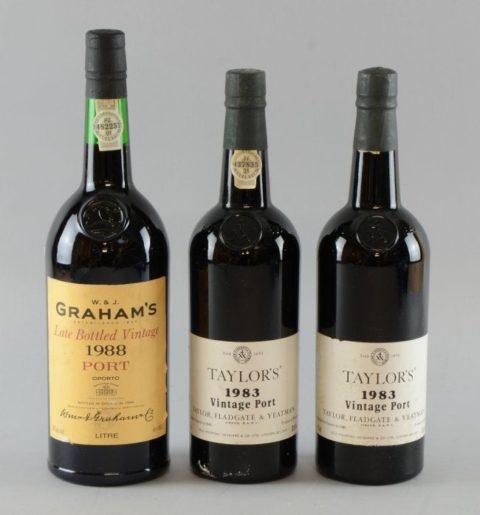Forgotten Weapons
Published 14 Dec 2020http://www.patreon.com/ForgottenWeapons
https://www.floatplane.com/channel/Fo…
Cool Forgotten Weapons merch! http://shop.bbtv.com/collections/forg…
In August 1913, the British War Office wrote to Sir Charles Ross requesting a sample automatic rifle for trials in the UK. Ross was able to submit a prototype in May 1914, which was tested at Enfield — but only fired 308 rounds before the test ended, suggesting that something important probably broke. The gun was a very strange looking contraption, whose Ross MkIII lineage is visible only in the bolt and front of the receiver forging. A long stroke gas pistol was added, and the action flipped upside-down. A large 25-round magazine was fitted, along with a thumbhole style stock that looks very similar to the grip of a Lewis gun. In addition to one example tested at Enfield in .303 caliber, one other model was send to the US for testing, chambered for .30-06. That is the gun we are looking at today, which came to the Canadian War Museum from the collection stored at Fort Knox in the 1970s and 80s.
Thanks to the Canadian War Museum for providing me access to film this extremely unusual Ross for you!
Contact:
Forgotten Weapons
6281 N. Oracle #36270
Tucson, AZ 85740
December 15, 2020
Experimental Pre-WWI Ross .30-06 Machine Gun
Port wine
In The Critic, Henry Jeffreys considers how Port became so popular in Britain:
Before there were package holidays, there was port. This was the way British people shivering on their cold wet island could get a bit of sunshine. It’s a miracle drink, preserving the heat of the Douro valley in liquid form for decades ready to be uncorked and spread cheer. And don’t we need cheer more than ever at the moment? According to Adrian Bridge, CEO of Taylor’s, British port sales were booming during lockdown.
Our love affair with port goes back a long way but the funny thing is that when wines from Portugal began to arrive in large quantities in the 17th century, people hated it. Port was a necessity because Bordeaux, the traditional wine of choice, had become expensive due to the high duty put on it from Cromwell’s time onwards. Early port was a rough sort of wine, often transported down to the city of Oporto in pig skins and adulterated with brandy and elderberries. A poem from 1693 by Richard Ames captures the mood of the times: “But fetch us a pint of any sort, Navarre, Galicia, anything but Port.” The Scots in particular were not impressed. After the Act of Union, wine drinking took on political connotations with Jacobites drinking claret and Hanoverians port. This antipathy to port still persists: a few years back, I sat next to a Scottish woman at dinner who complained that the English only drank port to thumb their noses at Napoleon.
It took a long time before port became the sweet smooth consistent wine that we know and love today. In fact, until 1820 it would usually have been dry. The vintage that year was so hot that the grapes contained more sugar than the yeasts could deal with, so brandy was added while the wines were still fermenting. It was such a success in Britain that this became the model for how port was made in future. Not everyone was keen, however. Baron Forrester, the man who first mapped the course of the Douro river, was still complaining about the new-fangled sweet port right into the 1850s. The current winemaker at Taylor’s, David Guimaraens, reckoned this year’s heatwave had more than a little in common with the 1820 vintage.
Port really is perfectly designed to deal with this heat. Even with modern temperature-controlled fermentation it can be difficult making balanced dry wine with such ripe grapes whereas adding brandy during the fermentation preserves the fresh fruit flavour. Furthermore, heavier wines can be blended with lighter vintages to make tawny ports which are aged for years in wood with oxygen contact. Tawnies were traditionally enjoyed more by the Portuguese but they’re becoming increasingly popular over here. They’re mellow, pale and nutty from oxygen contact, quite different to vintage wines. The great thing is they are ready to drink, no ageing or decanting needed, and an open bottle will last for months. In fact, wood-aged ports are practically indestructible, I’ve had examples from 1937 and 1863 that were both fresh and vigorous.
Grapes with the right balance can go into vintage releases, though a declared vintage from 2020 does look unlikely. The discovery of how well port aged in bottles was probably an accident. A well-off individual would buy a pipe of port (around 500 litres) and have it bottled and corked. It was discovered that after years in bottle, something sublime happened to the fiery tannic wine. A vintage from a declared year will need at least 20 years. Happily, for the impatient among us, ready to drink vintage ports aren’t terribly expensive when you compare with the price of say, mature Bordeaux or Burgundy.
History Summarized: Spread of Christianity
Overly Sarcastic Productions
Published 10 Jan 2017Things I learned when making this video: 1) when your script goes beyond 4 single-spaced pages, you’re heading into the danger zone 2) Gregorian Chants are awesome and you should totally listen to them, 3) editing always takes longer than you’d hope 4) self care is huffing frankincense for breakfast lunch and dinner and single-handedly sacking a levantine city!
Have a question about something I mentioned, or maybe something I might have left out? Leave it down below and I’ll do my best to respond!
PATREON: https://www.patreon.com/OSP
MERCH LINKS:
Shirts – https://overlysarcasticproducts.threa…
All the other stuff – http://www.cafepress.com/OverlySarcas…Find us on Twitter @OSPYouTube!
twitter.com/OSPyoutube







